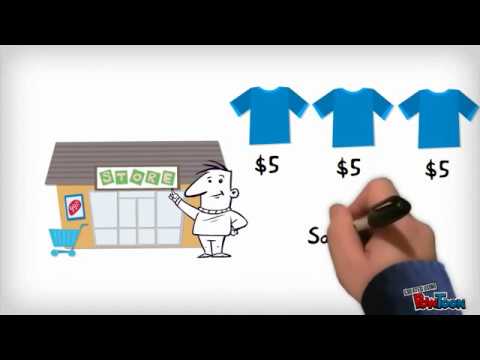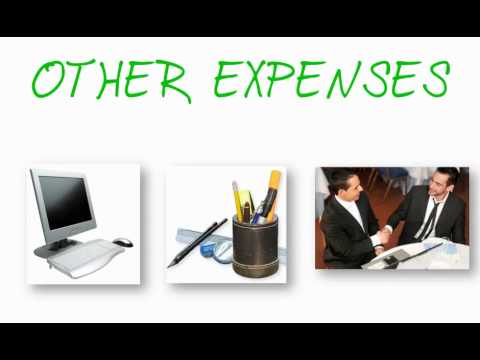Content
This includes any property you acquire after the IRS puts the lien into effect. A Notice of Federal Tax Lien may be filed to notify your other creditors that the IRS has an interest in your property. A tax lien can make it difficult to sell or refinance your home unless you get the lien released or withdrawn. A tax levy is a legal seizure of your property by the IRS or state taxation authorities. The IRS or State can levy your property if you have delinquent tax amount due and don’t take action to resolve your tax issues. You can also negotiate and try to settle your tax debts with the IRS.
- To calculate this amount, the final net grand list for personal property is to multiplied by the mill rate(s).
- If you receive this notice, you will also receive LT 11 or LT 1058, which informs you of your right to appeal.
- If you can prove that the levy was due to an error on the creditor’s part, or that you were the victim of identity theft, you may be able to have your account access restored.
- Garnishments can be stopped or lowered by working out another alternative with the IRS.
The IRS can levy your bank account, wages, or other property and apply the funds to the back taxes you owe the IRS. The amount the IRS will leave you with is dependent upon your filing status and the number of dependents. A married taxpayer who files jointly and has two dependents has an exempt amount of $630.77 per week, with the rest going to the IRS. The IRS will mail publication 1494 to your employer, which will explain how much will be exempt from the levy.
Examples of a Levy
A tax lien may cause problems if you ever want to sell or refinance an asset, because the tax debt may need to be paid or settled before you have free-and-clear control of the asset. Lenders don’t want to get in line behind the IRS, so they’re typically reluctant to approve a loan on a property with outstanding liens. As an alternative to a tax levy, the IRS can also place a tax lien on the property you own. A lien is different from a levy because a lien gives creditors the ability to potentially take and sell your assets at some point in the future. If the IRS sends a tax levy to your employer, it is required to send your paycheck to the IRS minus a very small amount which is exempt.

Except for a wage levy, levies are sent as warrants to certain law enforcement bodies. Sheriffs, marshals, constables, or the California Highway Patrol receive the warrant and are required to serve it promptly. They take immediate https://kelleysbookkeeping.com/ possession of the available assets according to the instructions accompanying the warrant. The IRS usually files liens with the county recorder or the clerk of courts in your county of residence or where your property is located.
Stopping or Removing a Lien or Levy
However, there is a long-term impact a levy can pose on your credit. For example, if the IRS garnishes your entire paycheck, it will likely affect your ability to pay other bills paid on time. Those unpaid bills will eventually show up on your credit report and can stay for up to seven years. Getting your paycheck and finding out the IRS has beat you to it is a gut punch. If the IRS collects on a levy through wage garnishment you won’t see it on your credit report.

As a last resort, you could file for bankruptcy to get a tax levy against your property released. Bankruptcy negatively impacts your credit report for several years. However, while your case is being filed and adjudicated, other creditors and the IRS cannot contact you about your tax debts or take any collection actions against you. Depending on the age and amount of your tax debt, you may have it consolidated into a Chapter 13 bankruptcy, allowing you to pay off your tax debts progressively each month. In rare cases, you can have the tax debt forgiven through Chapter 7 bankruptcy.
How Does a Tax Levy Affect You?
The IRS won’t proceed with the levy while the CDP hearing process is ongoing. The IRS can issue 1099 notices to several of your clients to seek repayment of your unpaid tax liability. Form 668-w is a document that the Internal Revenue Service (IRS) sends to an individual’s employer in order to levy their wages. This form allows the IRS to collect funds from an individual’s income, such as fees, bonuses, commissions, and other income. Generally, if an employer receives one of these forms, they are legally obligated to send the IRS funds from the employee’s wages. The IRS can’t take all the money from your paycheck, but they can use one levy to receive a portion of earnings from every paycheck until your back taxes due are paid off.
- FMS, IRS, and SSA have also shared program information with federal labor unions, senior citizen organizations, as well as ethnic and faith-based organizations.
- In these cases working with a tax resolution professional is the best strategy.
- The best way to avoid a levy is to get into a payment agreement with the IRS if you owe back taxes.
- Other creditors must provide proof of the unpaid debt and acquire a court order for the wages or other income to be garnished.
- If you own real property and try to sell it, the IRS will be paid the equity in your property.
- Before you know it, months have passed, and you are in danger of receiving a lien notice.
- However, federal agencies like the IRS do not need a court order in order to levy or garnish a person’s assets.
If you’ve fallen on hard times, it may be possible to set up a payment plan with the IRS that allows you to pay taxes over a more extended period. If the tax levy would create an extreme financial hardship for you, the IRS may hold off on collecting. However, as long as the tax debt still exists, you will need to deal with it eventually.
The best way to avoid a levy is to get into a payment agreement with the IRS if you owe back taxes. This is different from a tax lien, which doesn’t take your property, but secures rights to it. Keep in mind that a levy isn’t the only action the IRS might pursue against you. For example, if you’re seriously What Is A Tax Levy? delinquent (meaning you owe more than $54,000 in back taxes), it might affect your ability to apply for or renew a passport with the State Department. Here’s how a tax levy can affect you, as well as how to remove one. A green levy is a tax on greenhouse gases or other sources of pollution.
Luckily, specialized advisors are trained to handle situations like these. You may want to seek help from an enrolled agent at a tax resolution company, a CPA, or a tax attorney. These advisors can help with several aspects of your tax issues, including representing you before the IRS. This article is not legal or tax advice, and what exactly you should do after you’ve been levied by the IRS will depend on your particular situation. If you think the IRS has made a mistake in its decision or if the amount you owe is more than you can afford to pay, you’ll likely need to speak to an expert. If this happens, you’ll also have to complete and give your employer a Statement of Dependents and Filing Status within three days.
Thirty days after the Final Notice of Intent to Levy (Letter 1058 or LT11 notice), the IRS can seize your property. The IRS generally uses levies as a final solution, so it is advisable to work with them to resolve payment of your tax debt rather than letting a levy occur. If the IRS turns down your request to release the levy, you can appeal that decision. You might also be able to appeal to have your assets returned to you if the IRS has already seized them. For a full rundown of your appeal rights, consult Publication 1660, Collection Appeal Rights (PDF).
- However, as long as you make your payments on time and pay the required amount each month, the IRS rarely engages in collection activities, such as imposing liens or levies.
- Keep in mind that a levy isn’t the only action the IRS might pursue against you.
- For a full rundown of available options if you fall behind on your taxes, consult the IRS’s Collection Procedures and Publication 594, or speak with a qualified professional.
- In other words, the levy is a cap on the amount of property tax dollars a local government is allowed by law.
- Our partners cannot pay us to guarantee favorable reviews of their products or services.
The best way to stop a tax levy is by paying taxes in full and on time. If that’s not possible, a taxpayer can set up an installment plan with the IRS or try to negotiate a compromise. You can ask for a collection due process hearing from the IRS Office of Appeals if you want a review of a lien or levy notice. Also, if you disagree with an IRS employee’s decision about a lien or levy, you can ask for a conference with the employee’s manager. If you disagree with the manager, you can ask the Office of Appeals to review your case.
Liens and levies are part of the same process, but they’re not the same thing. A lien is a legal claim that the IRS makes against property they intend to seize in the future, while a levy is used to actually seize that property. If you are worried you will receive notice of a tax levy, or already have, it’s important to contact the IRS for guidance as well as a CPA, Enrolled Agent (EA), or local tax attorney. The IRS will issue levies to collect a taxpayer’s current (not future) 1099 payments. If you do not work with the IRS to resolve your tax debt and respond to their billing notices, the IRS may levy your property. Even if you think you do not owe the tax bill, you should contact the IRS.

